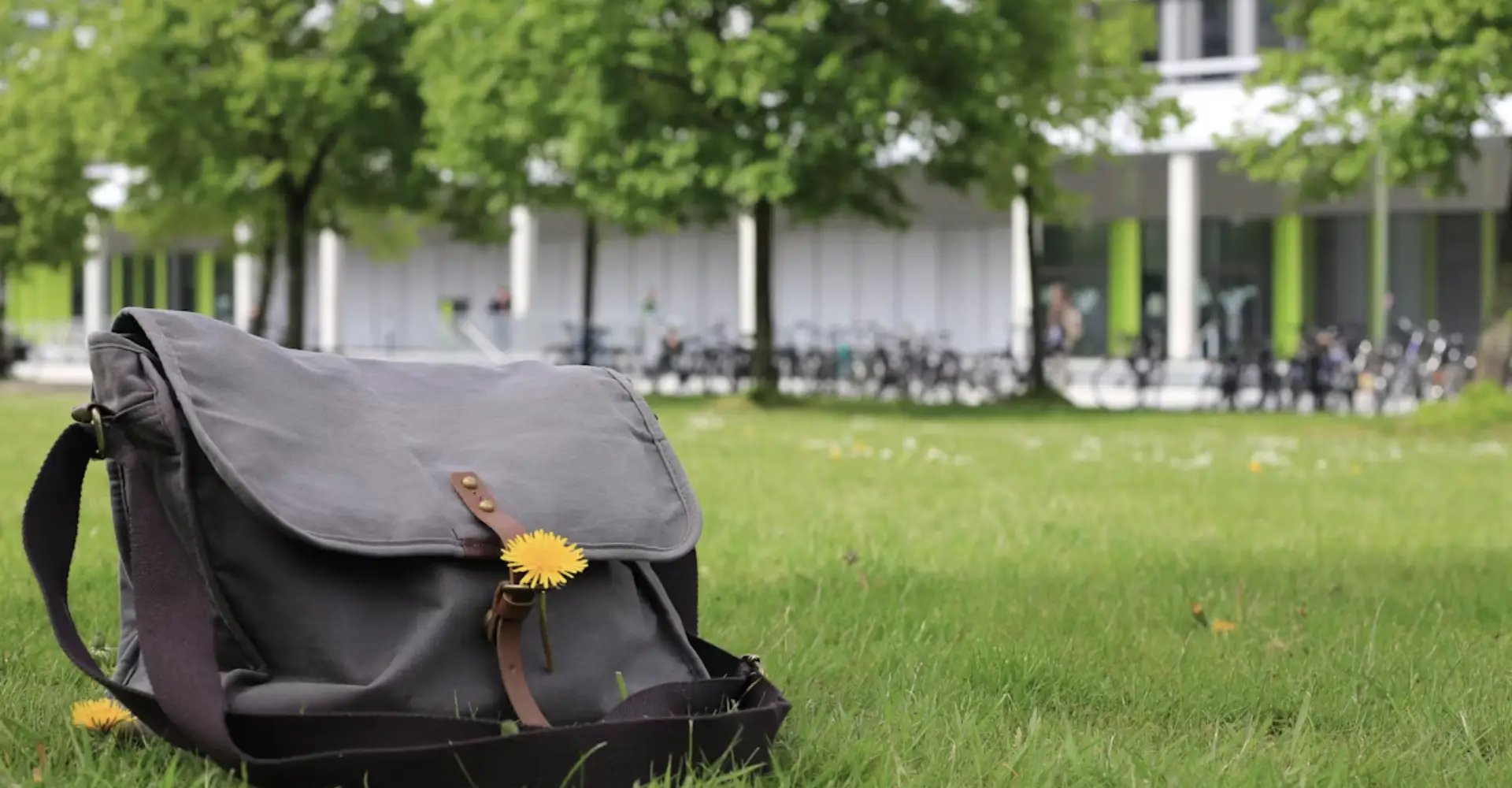Okay, let’s be real for a moment. When people talk about student life, it often gets glamorised: wild nights out, spontaneous adventures, a dangerous mix of chaos and independence. What people don’t talk about is how draining it all can be and the importance of self-care.
Juggling lectures with a social life, deadlines, your new independence and so on is a lot. In the middle of all that, somewhere, you’re expected to remain healthy, functional and sane. Somehow.
This is where self-care comes in. Not just bubble baths, face masks and a glass of wine like how Instagram sells it. Real self-care is about creating habits and boundaries for yourself to help you not fall apart. So, here are some self-care tips that I wish I’d have known or prioritised earlier in my university career.
Sleep is non-negotiable
Yes, I know you’ll have been told this one a million times by everyone you know, but sleep is NOT a luxury. It’s a basic survival necessity. At the start of uni, I used to stay up until 3 or 4 in the morning watching TV or finishing an essay or seminar notes. I felt more productive then. Spoiler alert: It didn’t make me more productive. It made me anxious, tired, moody, and forgetful. It made going to uni harder because I’d have to fight to keep my eyelids open during particularly boring lectures.
I know it’s difficult when you have lots of deadlines and want to go on nights out or catch up on a TV show, but try to keep your sleep consistent. Go to bed and wake up roughly around the same time every day. Turn your tech off at least half an hour before going to sleep.
Try to create a routine; tech off, a hot drink and read/journal (not academic reading though!), brush your face and teeth, etc. A good night time routine should help your brain shut down and keep your sleep routine consistent.
Eat real food
It’s fine to eat the odd pot noodle or takeaway here and there, we’ve all gone through periods in Uni where we only want to eat something that’s quick and easy around lectures and deadlines. Your brain needs good fuel. You don’t have to cook fancy Gordon Ramsey-esque meals; just make sure you have some protein, carbs, and veggies in your meals. Batch cooking things like spaghetti bolognese, curry, or soup is a great way of having a healthy meal that saves time. You can pot them up and freeze them, that way you have an easy ready meal that you can throw in the microwave after a day of lectures that’s healthy.
Also: drink water. Coffee and energy drinks aren’t a substitute for hydration (unfortunately).
Move (even if it’s just a walk)
Exercise is daunting, I get it. I’d rather be snuggled up in bed rewatching Captain America: The Winter Soldier than exercise. You don’t have to go to the gym five times a week or run a marathon to exercise, but moving your body helps a lot. It helps your mood, stress levels, and your sleep.
Try going for a walk around your campus, or do 20 minutes of a yoga guide on YouTube. You could stretch in your room, or even a 20-minute walk to a shop to get a sweet treat counts as moving your body!
Find something that’s fun and moves you around; it shouldn’t feel like you’re punishing yourself. Taking a 15-minute break from studying to go for a walk always helps me come back to my work with a calmer and clearer mind.
Keep in touch with friends and family

Moving away from home to university can be a lot. Due to the stresses of being a student and just generally being physically far from everyone and everything you know, it can feel like you don’t keep in touch with your friends and family as much anymore. However, that can be rectified. One of the best self-care tips for students is to schedule in time with loved ones regularly. Organise a Facetime catchup, Zoom party or just a phone call with your friends and family, and you’ll hopefully feel closer to them again.
Exercise and sweat it out

You may feel like you don’t do as much exercise as you’d like to at uni. Bus to campus, hours upon hours in classes and the library, bus back. So, as a way of taking care of yourself, why not try to do a little more exercise every so often? Maybe instead of getting the bus to campus, you could walk (obviously within reason, if you live far from campus then don’t walk for two hours just to get to campus). Your university might have a gym, so you could try going there too.
Exercise is a great way to boost your self-esteem, mood, sleep quality and energy, and is one of the best self-care tips to try as a student. It can be competitive, such as reaching a personal goal like running 5k or beyond, or to unwind and let off steam, such as yoga, swimming or kickboxing. Whatever you choose, using exercise as a form of self-care can be powerful, and good for your physical health too.
Unplug from technology

This is hard for almost everyone to do, especially students. But coming away from social media is a great tool for practising self-care. Technology comes with a lot of mental noise, and often prevents you from truly letting yourself switch off. Being able to let the mind, body and soul come away from social media and technology and be more present can actually work miracles! Give it a try for 12 hours…(during awake time).
Set boundaries

Uni culture can be very intense, especially when it comes to drinking and clubbing. You may feel pressured to go out every night and get absolutely drunk if that’s what your friends are doing. But, if you don’t want to, you don’t have to. Setting boundaries is probably one of the best self-care steps for students out there. Learning how to say no to situations is critical, especially for your mental health. Taking a night out from alcohol or clubs should be something that your friends respect (if they don’t, then maybe you should find some new friends?). It doesn’t always come easy, but setting boundaries is an effective self-care tool that you carry on past student life too!
Get comfortable saying ‘no’!
The FOMO is extremely real in university, and saying yes to everything often feels like the best way of making the most out of your university experience. You’re allowed to say no. Whether it’s a night out, helping someone else, or even just a flat movie night. If you’re barely keeping your head above the water, then you’re more than entitled to say no.
I know a lot of freshers won’t say no as they want to make memories, and have those uni experiences you see glamorised online, but creating boundaries is a massive and key part of self-care. Practicing saying no kindly but firmly creates the space that you need. The world won’t end if you say no to a social event, and you’ll thank yourself for it later.
Check in with yourself

When you reach the point of being so busy that you don’t even know how you’re feeling, you know it’s time to slow down and take a break.
Make sure every day you ask yourself the important questions:
- Am I sleeping enough?
- Have I eaten today?
- When was the last time I did something just for fun?
- Am I feeling overwhelmed?
- Have I taken time and done something for myself?
Journaling, even just for 5 minutes, can help you notice patterns in your moods or stress triggers. So maybe keep a journal and note down things like your mood, the amount you’ve slept, etc. There are apps that can help, too. See here for our list of apps for mental health support.
Clean your space, clean your mind
Tidying is boring, I get it. I’m the absolute worst for having a sea of things on my floor. Keeping your room even slightly tidy can make a huge difference to your mood. When your surroundings are messy and disorganised, it adds to your stress load. I’ve sat in a messy room during exam season, stressed because of my exams, but also stressed because of the state of my room. I then struggle with what I should prioritise (mainly because I know if I start to tidy my room, I’ll get distracted by every single thing I find).
You don’t have to completely blitz and deep-clean your room, just put things back where they live, open your window, and clear the rubbish off your desk. Even tidying a small section of your room can help, as you then know you’ve got that control over it again and have control over your stress.
Use your uni’s support systems
Every university has a variety of support that you can get for mental health, academic help and so on. A lot of students wait until they’re in a crisis to use them, as it can be daunting to reach out, or hard to find out where you need to contact.
Don’t wait. If you’re struggling with mental health, deadlines, or anything, reach out as soon as you can. Email the wellbeing team, talk to your personal tutor, or the pastoral lead for your course as they can point you in the right direction for what support you can get. It’s what they’re there for.
See here for our tips on building a support network at University.
Talk to Someone—About Anything
Again, don’t wait until you’re in a crisis to reach out. Sometimes talking to a friend or family member about something as simple as how your week is going can help ground you.
If you feel isolated, reach out to a flatmate or a coursemate. Ask if they want to go for a coffee and chat, or even study together. Asking for that little bit of time can help significantly, and people will always be willing to listen.
When uni life gets overwhelming, talking to someone who’s known you for years can feel like a warm hug. Keep in touch with friends or family from back home, even just a quick check-in message or a weekly call can ground you and remind you who you are outside of student life.
Limit the doom-scroll
Social media is all fun and cute cats jumping on things they shouldn’t, until it isn’t. Comparing yourself to other students, photoshopped models, or other influencers who “have it together” is a trap. You’re seeing their highlights, their best days; you don’t see the behind-the-scenes of their struggles, or the ugly bits of their lives. You can’t compare yourself based on what they show to the public.
Take a screen break. Replace TikTok with a quick walk. Turn off your notifications for a bit. Unfollow people you find yourself comparing yourself to. Your brain will be grateful.
Money stress is real – use a budgeting app

Nothing ruins the vibe more than checking your bank account and seeing you’ve got £3 to last you for the whole week.
Try using a budgeting app to track what you’re spending (I use Plum savings). Cook meals with your flatmates, take advantage of any student discounts, and plan ahead as much as you can. You don’t have to have it all figured out, but creating healthy money habits can help with looking after yourself and stress.
Your university will have a money advice team that you can reach out to if you need help budgeting. I’ve always found it hard to budget. I find that with having ADHD, I can’t visualise money, and so I find it hard to save money and figure out a good budget, but getting help from the uni or an app that shows you your spendings as a graph can really help!
And remember, no, you don’t need to go out drinking every night during freshers!
Make time for joy (not just rest)
Self-care isn’t just about recuperating, it’s also about having fun. Doing things that make you happy just because you want to do them is a great way of looking after yourself.
Paint, watch comfort shows, sign in the shower, take yourself out for the day. Life isn’t just about productivity; you need to reclaim time to ‘play’ and have fun. So go to that new coffee shop, or book that day trip to go shopping. Treating yourself to something fun every once in a while is good for you.
Schedule ‘me’ time

You’re with people pretty much all the time at uni, but don’t forget how nice ‘me’ time can be. Taking a night for yourself to just chill on your own can be great for your mental health. You can watch your favourite movie or TV show, listen to music, go for a walk, go to the gym, read or whatever you like. Doing things that you enjoy, no matter what anyone else thinks, is important! After all, self-care involves doing things for you, and when you’re a student, it can be hard to find the time! Here’s a tip on keeping up with self-care – put it in your calendar. Schedule one hour a week for yourself, and make sure you stick to it!
And make sure you protect your alone time
University is LOUD. Literally and emotionally. Between your flatmates, socials, busy schedules, and so on, it often feels like you’re never alone. Being “on” constantly can wear you down completely.
Make sure you set aside time for yourself as often as you can. Take yourself out for a coffee, or go somewhere like a park to read. Stay in your room while others go for a walk (Loop Earplugs absolutely saved me in Halls!). Your own time is valuable, and you don’t owe others an explanation for wanting to preserve some peace and quiet in your life.
Constantly being out, or around others will wear you down, so maintain a good balance of alone time vs social time.
Breathe

This last one may sound a little silly, but hear me out. We breathe about 22,000 times a day, so you literally have a method of self-care built in. Taking some time in the day just to focus on your breathing, taking slow, deep breaths in and out, can help you to calm down. There’s even apps for it, because that’s how effective breath work can be for self-care. This is arguably the best self-care tip for students because you literally don’t have to do anything, breathing is a natural process. Next time feeling anxious, stressed or down, give it a try.
So, there you have it, these are some of the top self-care tips for students. While not an extensive list, these will hopefully help you find some tips and strategies of your own to help you calm down. Self-care is an ongoing practice, so try to find ways to make them habits or regular activities.
Remember that if you feel like you need to talk to someone about any problem, your university will have a support team and you can talk to friends, family or someone trusted. No matter what the problem is, there will be someone or something out there to help you.
Authors
-
I'm a BA English Literature student at Chester University! I enjoy writing a mix of poetry, short fiction, and journalism– I'm a featured poet in a handful of anthologies.
View all posts
-
Aminah is a dedicated content expert and writer at Unifresher, bringing a unique blend of creativity and precision to her work. Her passion for crafting engaging content is complemented by a love for travelling, cooking, and exploring languages. With years spent living in cultural hubs like Barcelona, Sicily, and Rome, Aminah has gained a wealth of experiences that enrich her perspective. Now based back in her hometown of Manchester, she continues to immerse herself in the city's vibrant atmosphere. An enthusiastic Manchester United supporter, Aminah also enjoys delving into psychology and true crime in her spare time.
View all posts





